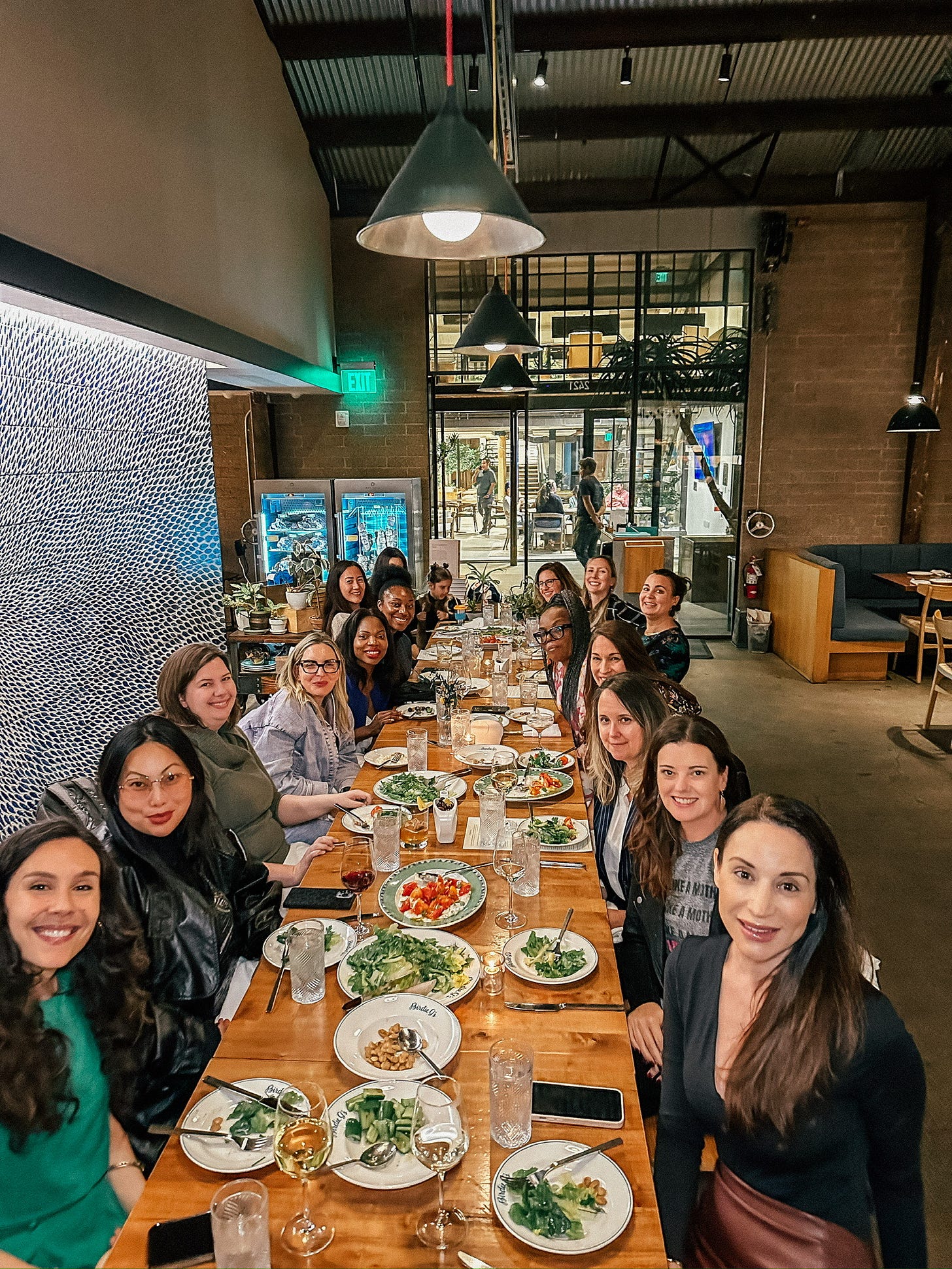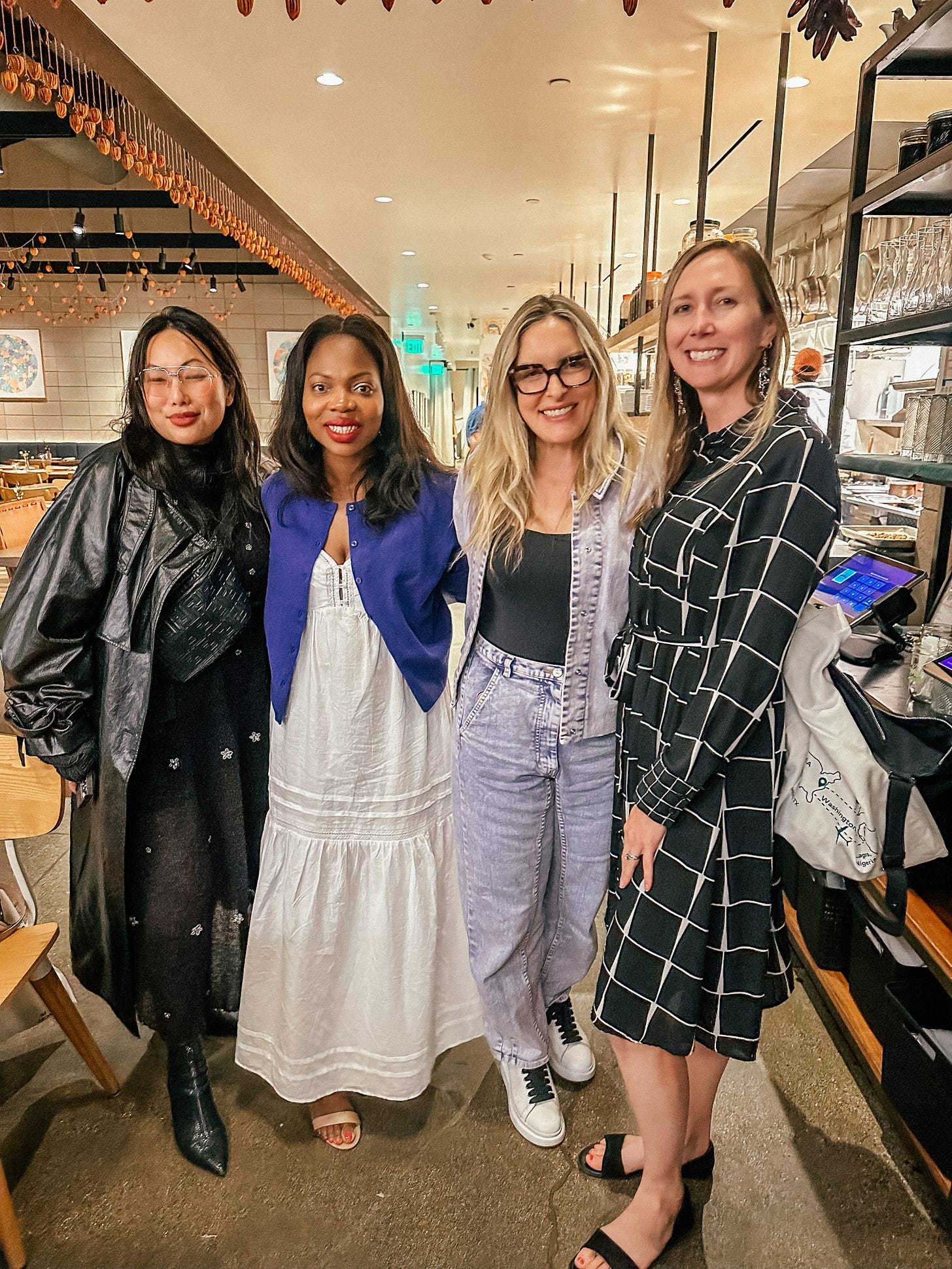The US Presidential Election has been hotly contested, won, and lost—but our unwavering focus on the care economy and closing the care gap for children, women, and families of all kinds remains unshaken.
Today, I am reminded once again of a critical truth: for women to access political power in meaningful ways, we need economic power. Talents, education, and accomplishments have carried us forward to a point, but it is collective economic power that will transform how far we can go. For too long, women have shouldered the weight of invisible labor, time poverty, and social expectations around caregiving. This isn’t a burden we can continue to carry alone, nor should we. Reclaiming our time—time stolen by invisible and visible care work—is paramount if we want to reclaim our lives and build a future of possibility for ourselves, our daughters, and our families.
While prominent men—Peter Thiel, Elon Musk, Paul Graham, and Mark Zuckerberg—have declared this era as “a time to build,” I call on women everywhere to seize this moment to reclaim their time. Time poverty is a structural barrier that robs women of the capacity to truly build, to claim agency over their economic and political futures, and to live in alignment with their fullest potential. It’s time to unapologetically reclaim our time—and to build lives and futures that honor the ambitions and dreams we have always held.

But let’s be clear: women cannot do this alone. Men must step up to the plate, especially when it comes to care. This is a critical piece of the future we are working toward. True progress cannot happen until we see care work—whether for children, households, or aging family members—as shared work that requires an equitable commitment from men. We need men to step fully into caregiving roles and actively support the homefront so that the weight of this essential labor is not a burden that falls solely on women. When men engage in care, they not only support their families but also help to build a more resilient, balanced society.
As we chart this course, we will intensify our global efforts to elevate the care workforce, strengthen childcare models and family support systems, and change societal expectations around caregiving. Our mission is to ensure that caregivers worldwide—particularly women—have access to living wages, dignity, and respect. Caregivers should not be among the poorest, least-protected workers in society. The work of care is the work that sustains us all, and it deserves protections, rights, and compensation that reflect its fundamental importance. Through The Care Gap and Caring Africa, we’re deepening our work through research, policy, and technology and changing the narrative around who bears the responsibility for care.
At Caring Africa, we are dedicated to addressing care challenges on the continent, from closing the childcare gap in Nigeria to advancing policies that support the health and economic security of women engaged in care work. By providing pathways to quality care options, we aim to reduce the disproportionate burdens that fall on women, enabling more of them to remain in the workforce, grow their careers, and attain financial security for their families.
Our commitment to driving change is multi-faceted and ambitious:
Closing the Childcare Gap: We are on a mission to ensure that access to affordable, high-quality childcare becomes a standard, not a privilege. Childcare should no longer be a barrier that holds women back from reaching their professional potential. We will continue to develop and advocate for childcare models that allow women to stay in the workforce, earn a living wage, and contribute to their economic futures.
Scaling Technology and Infrastructure for Care: Our proprietary care infrastructures and innovative technology will be scaled to reach millions, enabling families to seamlessly access resources, training, and support. We are creating digital solutions that expand care access and empower women to reclaim time and choice in managing household and caregiving responsibilities. From childcare to elder care, we envision a world where technology alleviates the invisible work that overwhelms so many.
Advocating for Comprehensive Care Policies: Our advocacy doesn’t end at the grassroots or organizational levels. We are engaging with policymakers globally to address the lack of care-friendly policies that inhibit women’s and men’s ability to thrive. Paid family leave, universal childcare, affordable elder care, and protections for domestic workers are essential policies that must become foundational in every society. Through The Care Gap, we will continue working with governments, NGOs, and businesses to build a world where care and care work is respected, compensated, and supported by robust policy.
Ensuring Fair Wages and Dignity for Care Workers: Elevating the care workforce is critical, and we are committed to securing fair wages, benefits, and career pathways for caregivers across all domains. At Caring Africa, our workforce initiatives aim to formalize and professionalize care work, shifting the paradigm from undervalued labor to recognized, essential contributions to society and the economy.
Encouraging Men to Actively Engage in Care: Changing the care economy also means changing how we define and value care within families. Men’s engagement in caregiving must no longer be the exception—it must be a societal standard. We are fostering dialogues, creating resources, and developing initiatives that equip men to step into these roles. Men need to be visible and vocal partners in this movement, supporting their partners, and fully participating in the work of care at home. It is only through this shift that we can create sustainable models for balancing work and family across genders.
The path ahead requires all of us to push forward together, collaborating in more ways than one . Let’s harness our collective economic power, direct our energy towards creating structural change, and dismantle the cultural and economic obstacles that perpetuate time poverty. Whether we’re addressing the care needs of children, aging populations, or individuals with disabilities, each effort we make is a step toward a fairer, more equitable society.
My ask of you: Use your voice, influence, and actions to support care as a pillar of economic and social progress. Share this message widely, and encourage others to join in this movement to close the care gap. Advocate for policies that prioritize care in your communities, workplaces, and governments. Encourage the men in your lives to step forward, take on care work, and support the homefront. Join us in our mission to make care work visible, valued, and supported.
Together, we can build a world that empowers all individuals—not just with words, but with time, resources, and the structures needed to build lives of fulfillment, balance, and prosperity. This is the era to reclaim our time and create the future we have long dreamed of—for ourselves, our families, and the next generation.
The Care Gap newsletter is written by Blessing Oyeleye Adesiyan, Care Innovator, Gender Equity Expert, and Founder + CEO of Mother Honestly Group Inc., the parent company of The Care Gap, Caring Africa, and Caring Blocks on a mission to close the care gap for families, workplaces, and economies globally through content, advocacy, and technology. Follow @blessing.adesiyan @thecaregap @caringafrica and @caring.blocks for more.




